Last Updated on November 20, 2021 by Sultana Parvin
Coronavirus disease or COVID-19 was first detected in Wuhan, the capital of Hubei province of China in December 2019. The disease has already spread like a pandemic in most of the countries of the world. The Western countries, particularly the US and European countries not tuned with how to live with coronavirus COVID-19 are worst hit by its pandemic. Cases of infection are accelerating in Middle Eastern countries, Turkey, Russia, and even Amazonian country Brazil. Although presently its devastation is a bit slow in African and South Asian countries, there is no reason to believe that these nations will be immune to this deadly disease.
COVID-19 is not a seasonal disease or short-term epidemic. Researchers and experts are warning about the likely 2nd or 3rd wave of this disease. Scientists in Europe think there will be a second wave of the novel coronavirus, most likely again in the latter half of this year. The Spanish Flu of 1918-1919 infected almost one-third of the world population and totaling the death of about 50 million people all over the world. The worst fatalities were seen by its 2nd and 3rd waves (Figure-1[i]).
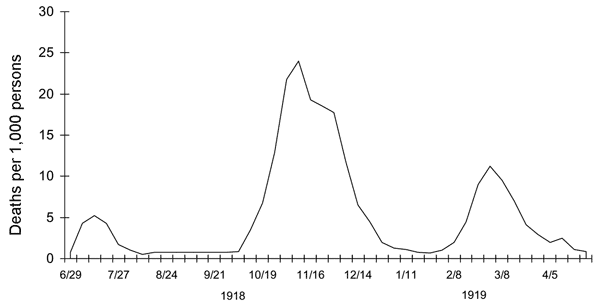
Figure 1. Death Rates of the Spanish Flu, June 1918 to May 19
Although scientists and physicians have been working day and night for the production of appropriate vaccines for Coronavirus, none can assure its availability even within a year. As such, it is believed that the COVID-19 scenario will be longer than what we are thinking. In this situation, it is very important for all of us to know how to live with coronavirus COVID–19 and abide by the “Do’s and Don’ts for a healthy life”.
If we look to some countries or major cities which are hard hit by COVID-19, we find people of some segments are more affected and some are not. In the USA, almost one-third of infections nationwide have affected black Americans, according to data from the Centers for Disease Control. In addition to the underlying health conditions, an individual’s habits and way of life matters a lot to coronavirus contraction cases. With a better healthy lifestyle, the white Americans and Hispanic communities are lesser affected, while Asian Americans are found least infected and their mortality rates are also lower.
Experts have so far talked about two things as preventive means and to fight against COVID-19. One is the lifestyle or habits: what we should do and what we should not; where to go and where to avoid for saving us from infection of the virus. The other is the building body’s immunity that can fight against the attack of the virus. Intellectuals advise to increase the body’s immunity are, intake of vitamin D from the sun; eating foods and drinks which improve body cells, protein, and DNA; physical activity or exercise; regular sleep and free from anxiety. Avoiding certain habits like smoking, drinking alcohol, and eating fast/junk food, etc., are also recommended to reduce the risk of COVID-19.
Therefore, this writing makes an endeavor to jot down a set of dos and Don’ts as our day-to-day lifestyle for prevention against COVID-19 and maintaining our physical fitness to keep our bodies capable to fight against infectious viruses and live with coronavirus COVID-19.
Table of Contents
Lifestyle and Changing Habits to live with coronavirus COVID-19
As we know that Coronavirus is highly contagious and it is in and around our society, we need to change our lifestyle and habits adjusting to this situation. If you are in a society, where you are not sure about infectious cases, the best way is to avoid going out of the home. But how long you can isolate yourself? And how many people will be quarantined as possible direct or indirect contacts with COVID-19 positive cases?
Coronavirus will not disappear from our society soon. Someone as a carrier of the virus may be around you, which you or the carrier himself does not know. Therefore, once you come out of your home, you should assume that people around you might have been carrying the virus and take precautionary measures. In such a situation your lifestyle and habits should bear with the following Dos and Don’ts:
Dos
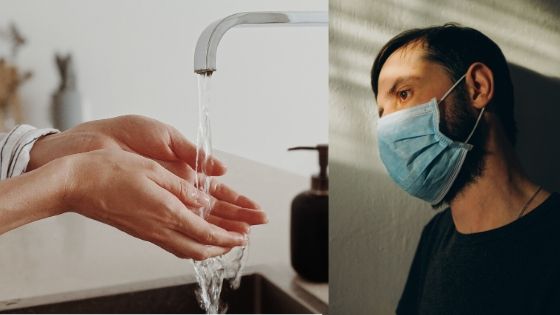
- Wear your mask whenever you are likely to come closer to 6 feet with any other person out of your home.
- Wear hand gloves, if you are touching any object outside.
- Wash your hands with soap soon after touching any object or upon returning home or the workplace.
- Maintain social distancing of at least 6 feet or as per as possible from other persons around you.
- Carry a small hand sanitizer with you to rub your hands after touching any object, like a door, handle, seat, etc. of the vehicle you are traveling.
- Disinfect or sanitize whatever comes to your home in touch with another person’s hand.
- Consult the doctor over the telephone before you need to visit the hospital.
- Leave or remove your shoes outside the door of your house.
- Disinfect your shoes with chlorine water, if you need to take your shoes inside. You can use a jute sack soaked with chlorine water and keep in front of the door.
- Open your protective gears on return home/place of resting and disinfect/dispose of properly, if you were using it.
- Wear PPE, head cover, goggles, or protective face cover, if you are a health worker and visit hospital or COVID positive cases.
- Must take shower and wash your clothes, if you have visited hospitals or COVID patients.
- Isolate yourself, if you have symptoms of COVID-19. End your isolation period after 7 days, if you don’t feel unwell[i].
- Isolate yourself, if you have gone in touch or close to any COVID positive person without protective gear.
- End your isolation period after 14 days. The 14 day period starts from the day when the first person became ill.
Don’ts

- Visit places that are not essential for you.
- Attend ceremonial events: marriage, congregation, party etc., where social distance is not ensured.
- Travel within or outside the country unless in extreme need.
- Travel by public transport, unless you can maintain social distancing.
- Shake hands or hug or even come closer with any person, not of your household.
- Visit crowded places like busy markets, procession, congregation, etc. where social distancing is not maintained.
- Go for mass gatherings, celebrations, stadium/galleries for watching games or cinema halls, shopping mall etc.
- Take haircut, shave or message, makeup etc. by common barber or parlor/beauty shop.
- Visit hospitals for minor cases or as courtesy visits to patients.
- Visit isolated or locked down places unless in an extreme emergency.
- Eat anything out of your home, unless you can properly wash or sanitize your hands.
- Buy readymade foods or drinks from shops for instant eating unless you are sure that all precautions against COVID have been taken.
- Invite others to any party or celebration.
- Go near to fire or any ignition material after using sanitizer or products with alcohol/spirit.
Building Body’s Immunity
Foods and Drinks
Coronavirus is a microorganism with protein, due to which people are likely to suffer from fever, coughing, breathing problem, severe pneumonia, etc. among many other symptoms. But, the infection of our respiratory system or digestion system is a dangerous symptom of COVID-19. As a result, this virus can turn into a dangerous life-threatening disease.
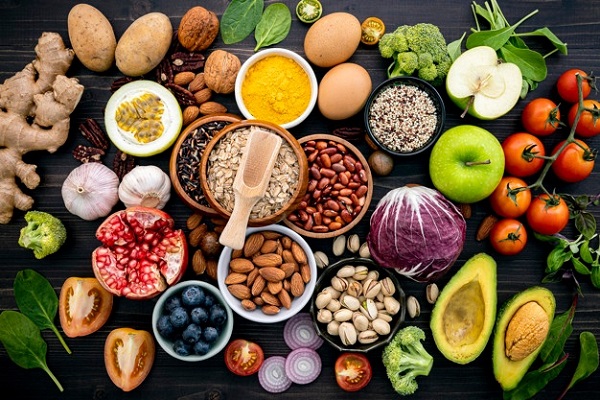
As such, every day we need to eat more of those foods which can save body cells, protein, DNA, etc. for fighting against those harmful compounds and reduce the risk of COVID-19 infection in the body. Foods rich with anti-oxidant and those combined with beta carotene, vitamin A, vitamin C, vitamin E, lycopene, etc. contribute to building antibodies or developing your body’s immunity.
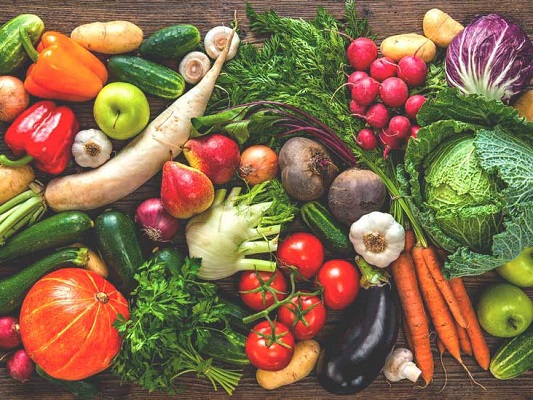
Vegetables, fruits, and nuts improve the antibodies which can play an active role in preventing pneumonia. Seed-type foods, seafood, nut, milk, etc. with vitamin B-6 and zinc increase the body’s ability to produce immune cells. Besides, high-fat foods should be eaten to prevent pneumonia.
Therefore, we should eat those foods that can boost improving antibodies and prevent pneumonia. Thus, in terms of foods and making your eating habit to live with Coronavirus COVID19 the Do’s and Don’ts are as follows:
Dos
- Eat most bright color fruits (mango, papaya, grapefruit, pomegranate, etc.) and vegetables (carrot, beetroot, purple cabbage, sweet pumpkin, bitter melon, eggplant etc.). These are also a very good source of anti-oxidant.
- Eat vegetables with vitamin A and vitamin C: broccoli, tomato, sweet potato, capsicum, green chili, cauliflower, etc.
- Eat leafy vegetables with Vitamin E: All types of green or other colored vegetables.
- Eat fruits with Vitamin C: lemon, orange, amla, grape, queue, watermelon, berry, olive, pineapple, etc.
- Eat more lemon and citrus type fruits as these are very rich with Vitamin C and act as an antioxidant to prevent oxidative stress.
- Eat nuts and seeds as a good source of Vitamin E: walnut, peanut, pistachio, broad bean seed, chickpea, oats, red rice and flour, olive pickle, peanut oil, seeds, and vegetable oil, etc.
- Eat condiments: ginger, garlic, turmeric, cardamom, cinnamon, clove, etc.
- Eat yogurt as it is probiotics, which prevent the risk of respiratory and circulatory infections.
- Eat high-quality non-vegetarian foods: eggs, chicken, fish, etc. (sea fish should be eaten more often).
- Drink more water as it keeps every system in the body functioning properly.
- Drink green tea as it contains anti-oxidants named EGCG and Elthenin, which helps in building our body immunity by producing many compounds to fight germs.
In order to get the best work of anti-oxidants, you need to cook the food in medium heat during cooking or at the required temperature without cooking it for long.
Don’ts:
- Take any readymade foods outside unless you are sure that there was no hand touch during the preparation or after cooking.
- Drink all kinds of carbonated drinks (Coca-Cola, Pepsi, Seven-up, Mirinda, Fanta, Lemon Dew, and Lemonade etc).
- Eat cold foods, ice cream, cake/pastry, cold water, cold drinks etc.
- Eat raw salt, sugar, and sugary foods (salt and sugary foods decrease the power of your body’s immunity cells).
- Make habit of eating fast food or junk food (foods fried with too much oil, testing salt, soda, mayonnaise, etc).
- Smoke: cigarettes and other tobacco-based addictive foods increase the risk of lung infections by interfering with immunity.
- Drink alcohol as it depresses the immune system making it difficult to fight infections.
Exercise or Physical Activity
Exercise or physical activity increases the production of the antioxidant that can help your body’s immune system to fight against COVID-19. Your body and mind can highly benefit from regular physical activity. It reduces high blood pressure, helps manage weight, and reduces the risk of heart disease, stroke, type 2 diabetes, and various cancers[ii]. You can improve your bone and muscle strength and reduce weight gain, improve sleep, and boost the immune system through physical exercises.
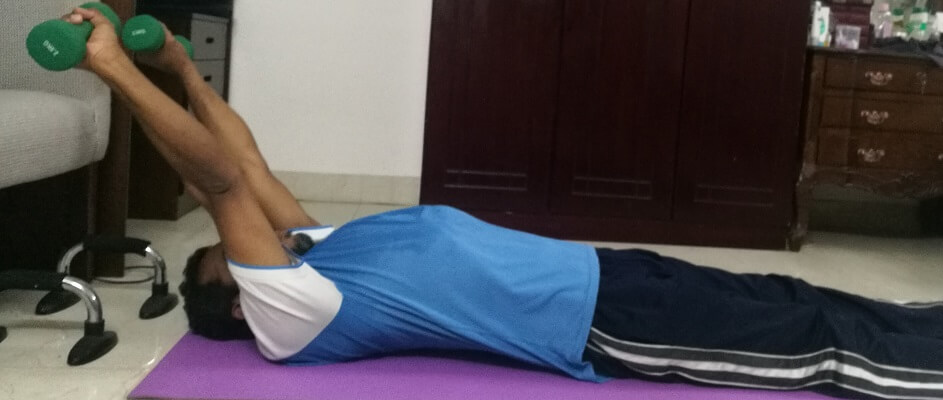
As our movements are restricted during the COVID-19 pandemic, it has become more important for us to do physical activity within the allowed places. It is not necessary to go for active recreation, sports, cycling, group run, etc. You can do some form of exercise or physical activities such as solo jogging/walking, walk with your spouse. Even in quarantine or locked down situations doing yoga or stretching, climbing stairs, and playing with your households can improve your mental health and reduce the risk of depression.
For Muslims, daily 5-time salat (prayers) and optional salat also help ease muscle strain, relieve mental tension, and improve blood circulation. Even your gardening works (soil preparation, cleaning, carry tubs, watering, etc), or lifting heavy shopping bags, cleaning your home and surrounding areas, can make you moderate to intense physical exercise.
Therefore, being it challenging to become active during the COVID-19 pandemic, the following Do’s and Don’ts are advised:
Dos:
- Plan on each day the ways to become active and to move more and sit less.
- Give a short break from sitting for a long time, do your physical movement for 3-5 minutes, stress your leg, muscle, or walk for a while.
- Find ways for physical activities: active games and active play with family.
- Walk around your yard or rooftop, do some sit-up or push-up or climb stairs that build your leg muscle and bone.
- Make use of your home treadmill, if you have any. You can also acquire a yoga mat, mini dumbbells; pushup stands, etc. for light exercise at home.
- Exercise with online videos: if you enjoy yoga, strength training, or dance, or another type of physical workup, you would find those videos online.
- Take online fitness classes or private virtual training sessions customized to your needs, schedule, and preferences, if you are financially well off.
- Get outdoors if permitted for walking, cycling, jogging, etc. and for getting much-needed sunlight and fresh air while maintaining social distance.
- Start slowly, and then gradually increase the duration of the activity, if you are not habituated of doing physical activity, and over time you can increase the frequency and intensity of exercises.
- Take care of plants in your backyard garden, wash or clean your car, garage, mop your living area, and surroundings with the spirit physical activities.
Don’ts:
- Spend sitting for a long time without a break.
- Restrict movements out of bed or couch or lockdown in the computer desk.
- Start playing games (soccer, basketball, baseball, cricket, etc.) or jogging within the crowd, even if you are allowed for outdoor physical activity.
- Use public or shared gyms or exercise instruments without disinfection after use by another person.
- Start swimming in commonly used pools.
Live With Coronavirus COVID-19 | Dos And Don'ts
Lifestyle and Changing Habits
- Wear your mask whenever you are likely to come closer to 6 feet with any other person out of your home.
- Wear hand gloves, if you are touching any object outside.
- Wash your hands with soap soon after touching any object or upon returning home or the workplace.
Don'ts
- Visit places that are not essential for you.
- Attend ceremonial events: marriage, congregation, party, etc., where social distance is not ensured.
- Travel within or outside the country unless in extreme need.
Building Body’s Immunity
Dos
- Eat most bright color fruits (mango, papaya, grapefruit, pomegranate, etc.) and vegetables (carrot, beetroot, purple cabbage, sweet pumpkin, bitter melon, eggplant, etc.). These are also a very good source of anti-oxidant.
- Eat vegetables with vitamin A and vitamin C: broccoli, tomato, sweet potato, capsicum, green chili, cauliflower, etc.
- Eat leafy vegetables with Vitamin E: All types of green or other colored vegetables.
- Take any readymade foods outside unless you are sure that there was no hand touch during the preparation or after cooking.
- Drink all kinds of carbonated drinks (Coca-Cola, Pepsi, Seven-up, Mirinda, Fanta, Lemon Dew, and Lemonade, etc).
- Eat cold foods, ice cream, cake/pastry, cold water, cold drinks, etc.
Exercise or Physical Activity
- Plan on each day the ways to become active and to move more and sit less.
- Give a short break from sitting for a long time, do your physical movement for 3-5 minutes, stress your leg, muscle, or walk for a while.
- Find ways for physical activities: active games and active play with family.
- Walk around your yard or rooftop, do some sit-up or push-up or climb stairs that build your leg muscle and bone.
Don’ts
- Spend sitting for a long time without a break.
- Restrict movements out of bed or couch or lockdown in the computer desk.
- Start playing games (soccer, basketball, baseball, cricket, etc.) or jogging within the crowd, even if you are allowed for outdoor physical activity.
Vitamin D from Sun
Vitamin D, also known as sunshine vitamin can be obtained from natural sunlight. When the sunlight hits the skin, it produces vitamin D in our bodies. Vitamin D protects our body against inflammation, helps muscle, heart, lungs, and brain function properly[iii]. It is thus, certainly a God gifted ingredient for increasing our body’s immunity. Adaptability in natural hot weather is also important for increasing our physical ability to absorb more sunlight. As such, the Do’s and Don’ts in this connection are as follows:
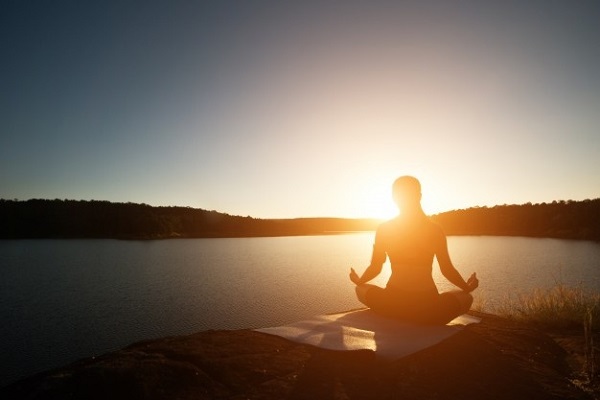
Dos:
- Expose your skin/body under the sun for 10-15 minutes daily or as per as possible.
- Let your face, hands, and legs get sunlight if it is not possible to expose the other portion of your body.
- Engage yourself in some form of work under the sun. While doing so you can get vitamin D as well as your physical exercise indirectly.
- Adapt to living in the natural hot weather.
Don’ts
- Wait for soothing weather for your work outside.
- Cover more of your skin while working under the sun.
- Make habit of sleeping in an air-conditioned environment.
Regular Sleep and Anxiety Free Life
Researches have found that sleep deprivation weakens the body’s first immune response or the innate immune system, and as a result, we become more vulnerable to contracting the virus[iv]. Our brain function, mood, and energy for work are all related to an optimal level of sleep. Again if we are mentally stressed with a lot of tension or anxieties, it would be difficult to get regular sleep. Thus our regular sleep is dependent on anxiety-free life, which ultimately affects our bodies’ immunity to fight against COVID-19. Thus, Do’s and Don’ts with regard to sleep well and anxiety-free life are as follows:
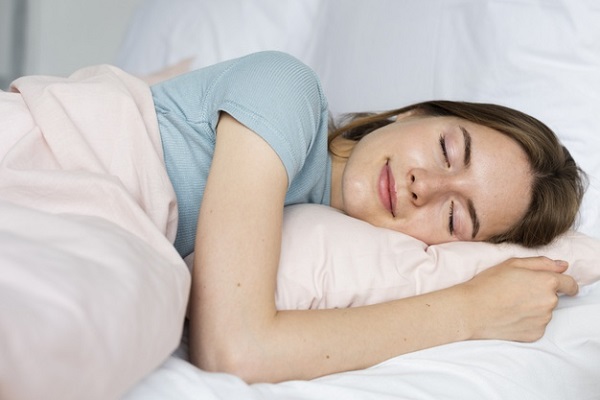
Dos:
- Sleep for 6-8 hours.
- Try to forget all matters that might become causes of your tension.
- Let your brain rest not counting every gain and loss of your business.
- Make use of available time with your jobs, prayers, physical exercise, and beautiful moments with your family members, etc.
Don’ts
- Think much about the happenings even though it is not going well for you.
- Be afraid of whatever situation develops even if you fall sick or lose in your business.
- Let your brain take all loads of anxieties.
Final Words
With the prevailing circumstances, it is evident that we have to live with Coronavirus COVID19 for at least another one to two years until an appropriate vaccine is available. The virus will survive in our society either through an infected person or through any contaminated object. We would remain vulnerable to the virus if we do not build our bodies’ immunity or unless we adapt to the changed lifestyle and modify our habits to avoid contraction. Remaining isolate at home and social distancing are not long-term solutions as ultimately we have to come out of home for our jobs, business, grocery, shopping or visiting friends and relatives, etc.
So, there is no better alternative to build your body’s immunity till you are vaccinated. This paper thus makes out lists of all provable dos and Don’ts that are relevant to adopting good habits or modifying our lifestyle and ways to build up your body’s immunity. Eating good foods and drinks and leaving unhealthy ones, physical activity or exercise, getting under the sun to obtain vitamin D, and regular sleep with anxiety-free life are discussed as means to build the body’s immunity. These will not only save you from COVID-19 but also let you have a healthy life.
For more about COVID-19 food and drinks check here.
[i] Stay at home: guidance for households with possible coronavirus (COVID-19) infection, UK Public Health Guideline, GOV.UK, https://bit.ly/2WjOcND, last updated 20 Apr 2020
[ii] Be Active during COVID-19, World Health Organization, https://bit.ly/3b9GBFj, Published on 27 March 2020.
[iii] The Most Surprising Sources of Vitamin D, The Active Times, https://bit.ly/2SOzr3b, Published on 31 March 2016.
[iv] Sleep, immunity and COVID-19, UCI Health, https://www.ucihealth.org/blog/2020/04/sleep-immunity-covid, Published on 16 April 2020.
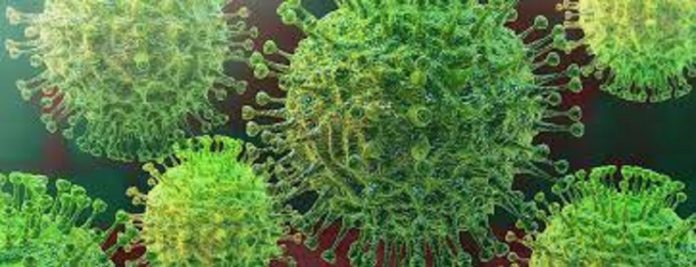
Comments are closed.